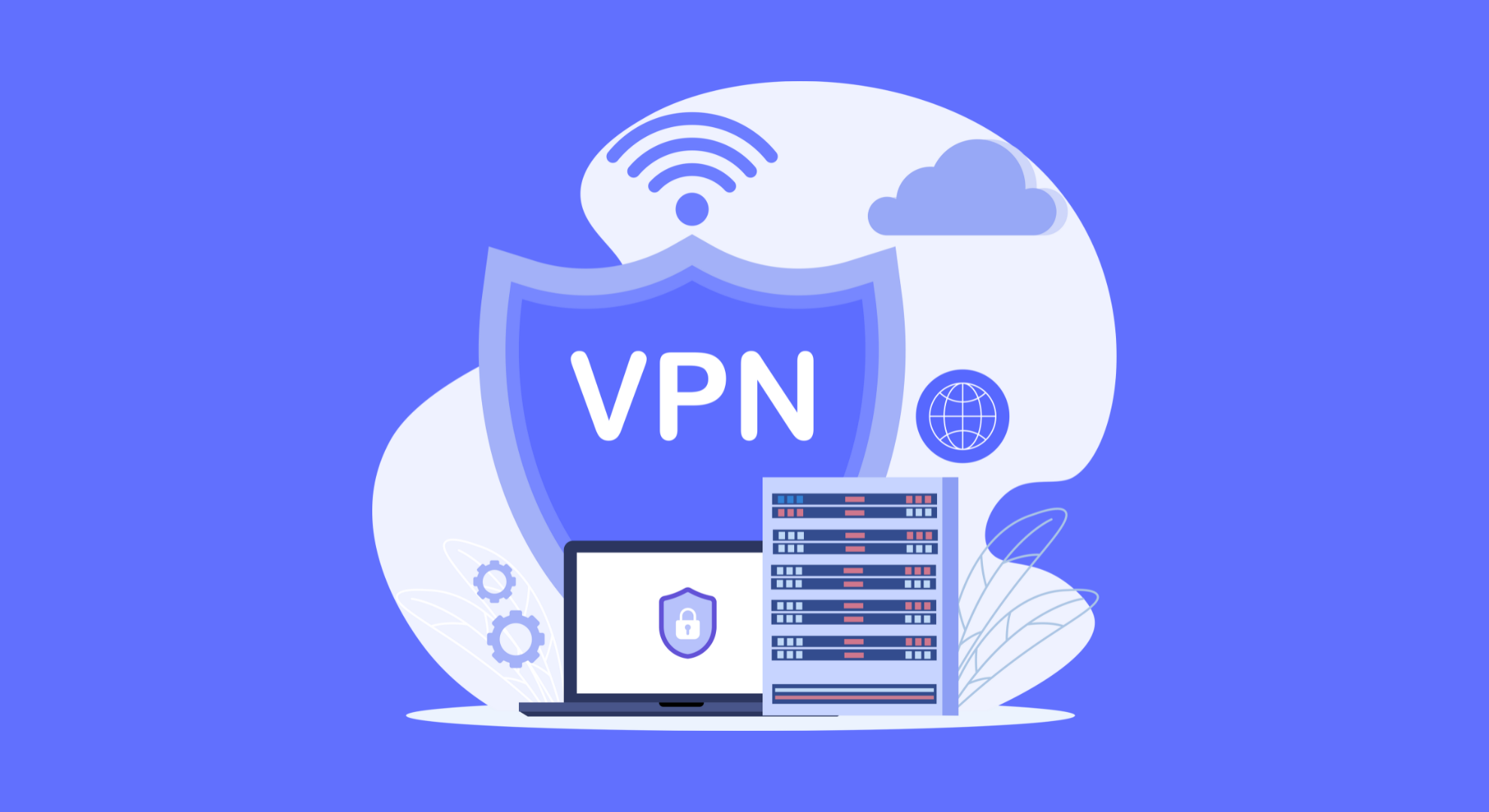
VPN Encryption Protocols secure data transmitted over Virtual Private Networks (VPNs). OpenVPN, a widely used open-source protocol, provides flexibility and robust security. IPsec, often used with L2TP or IKEv2, secures IP communications. L2TP/IPsec adds an extra security layer, while IKEv2 excels in quick reconnections. SSTP, developed by Microsoft, is suitable for Windows devices. WireGuard, a newer protocol, prioritizes simplicity and high performance. Users must choose the right protocol to enhance online privacy and security.
What is the primary purpose of a VPN protocol?
A VPN protocol serves primarily to establish a secure and encrypted connection between a user’s device and a VPN server. It ensures the confidentiality and integrity of transmitted data, allowing users to browse the internet, access resources, and communicate securely. These protocols define the rules and methods for encrypting communication, actively safeguarding sensitive information from potential threats and unauthorized access, ultimately providing users with a secure and private online experience.
Understanding Different VPN Protocols
1. IKEv2/IPsec
The widely-used security protocol suite, IKEv2/IPsec (Internet Key Exchange version 2 / Internet Protocol Security), ensures secure communication over the internet. It combines the benefits of the IKEv2 key exchange protocol with the IPsec security framework, offering a robust solution for VPN (Virtual Private Network) implementations.
Pros:
- High Security: Strong encryption and authentication.
- Resilience: Seamlessly handles network changes.
- Efficient Reconnection: Quick reconnection without full renegotiation.
- Performance: Low latency, suitable for real-time applications.
- NAT Traversal: Works well behind NAT devices.
Cons:
- Complex Configuration: Can be challenging for non-experts.
- Compatibility Issues: Potential issues between different implementations.
- Firewall Challenges: May face difficulties passing through restrictive firewalls.
- Limited Browser Support: Not natively supported in web browsers.
- Proprietary Implementations: Some implementations may include proprietary extensions.
2. OpenVPN
Discover OpenVPN, an acclaimed open-source VPN protocol known for its adaptability and security features. We’ll explore the protocol’s strengths, such as transparency and robust security, and address potential challenges, including initial setup complexities and performance considerations. Join us for a concise examination of why OpenVPN remains a favored choice for secure virtual private networks.
Pros:
- Open Source: Transparent and community-supported.
- Cross-Platform: Compatible with various operating systems.
- Flexible Security: Configurable encryption and authentication options.
- Reliable Encryption: Strong security with SSL/TLS protocols.
- Community Support: Benefits from a large user and developer community.
Cons:
- Configuration Complexity: Initial setup may be complex.
- Potential Performance Issues: Might be slower in bandwidth-intensive scenarios.
- Firewall Traversal: Requires additional configuration in certain cases.
- Port Blocking: Default ports may be blocked in restricted regions.
- Mobile Setup: Mobile configuration may be less straightforward.
- UDP/TCP Decision: Choosing between UDP and TCP may be confusing.
3. PPTP
Point-to-Point Tunneling Protocol (PPTP) is an older but widely used VPN (Virtual Private Network) protocol designed by Microsoft to establish secure internet connections. PPTP has historically gained popularity due to its simplicity and easy implementation.
Pros:
- Ease of Setup: Simple configuration for users with limited technical knowledge.
- Compatibility: Widely supported on various platforms and devices.
- Fast Connection Speeds: Offers relatively fast connection speeds.
- Low Resource Requirements: Efficient for devices with limited processing power.
Cons:
- Security Concerns: Known vulnerabilities, considered less secure than modern protocols.
- Limited Encryption: Relies on weaker encryption methods.
- Firewall Interference: GRE protocol may face issues traversing certain firewalls.
- Not for Sensitive Data: Not recommended for transmitting sensitive or confidential information.
4. SSTP
Secure Socket Tunneling Protocol (SSTP), developed by Microsoft, enables secure communication over the internet by establishing a private, encrypted connection between a user’s device and a remote server. It is a VPN protocol designed to offer a secure and reliable method for remote access to private networks, especially for Windows-based systems.
Pros:
- Security: Uses SSL/TLS for encrypted connections.
- Firewall-Friendly: Bypasses firewalls by using standard HTTPS port (443).
- Windows Integration: Seamless integration with Windows OS.
- Reliability: Known for maintaining stable connections.
Cons:
- Platform Compatibility: Limited support on non-Windows platforms.
- Proprietary Nature: Closed-source protocol, lacks transparency.
- Limited Router Support: Some routers may not support SSTP.
- Censorship Potential: HTTPS port usage may face restrictions in regulated environments.
5. L2TP/IPsec
Layer 2 Tunneling Protocol (L2TP) and Internet Protocol Security (IPsec) together create a widely-used VPN (Virtual Private Network) protocol suite. L2TP handles tunneling, and IPsec secures transmitted data, forming a robust framework for secure and private internet communication.
Pros:
- Wide Compatibility: Supported on various platforms, ensuring compatibility.
- High Security: Offers robust encryption, authentication, and integrity verification.
- Firewall-Friendly: Uses standard ports for better firewall compatibility.
- Stability: Known for providing a stable and reliable VPN connection.
Cons:
- Potential Performance Impact: Additional security measures may impact performance.
- Complex Configuration: Setup can be more intricate compared to some protocols.
- Regional Blocking: Prone to being blocked in regions with strict internet censorship.
- NAT Traversal Limitations: May face challenges with Network Address Translation (NAT) traversal.
6. WireGuard
WireGuard, a modern and innovative VPN (Virtual Private Network) protocol, prioritizes simplicity, efficiency, and enhanced security in its design. Unlike traditional VPN protocols, WireGuard focuses on delivering a lightweight, high-performance solution for secure internet communication.
Pros:
- Simplicity: Easy to implement and maintain with a streamlined codebase.
- High Performance: Offers efficient and fast network performance.
- State-of-the-Art Encryption: Utilizes modern cryptographic protocols for enhanced security.
- Dynamic Routing: Supports dynamic peer management without restarting the VPN.
Cons:
- Maturity Concerns: Relative youthfulness may raise questions about long-term stability.
- Limited Protocol Support: May lack advanced features and compatibility with older systems.
- Integration Challenges: Not universally integrated, requiring additional software in some cases.
- IP Leaks Risk: Incorrect configuration may lead to potential IP leaks, necessitating careful setup.
Which VPN protocol provides the highest level of security?
The security of a VPN protocol relies on various factors, and there isn’t a one-size-fits-all answer. However, as of my last knowledge update in January 2022, many consider OpenVPN and WireGuard highly secure.
- OpenVPN: OpenVPN, known for its robust security features, utilizes OpenSSL encryption protocols and has undergone extensive security audits. Its open-source nature allows for community scrutiny and ongoing improvements.
- WireGuard: WireGuard, a more recent protocol, has gained attention for its simplicity and strong security design. While newer, it benefits from modern cryptographic techniques, reducing the attack surface and potentially enhancing overall security.
It’s important to note that the security of any VPN connection also depends on proper configuration, key management, and the specific implementation by VPN service providers. Additionally, the security landscape evolves, so staying informed about the latest developments in VPN protocols is advisable. Always choose a reputable VPN service that keeps its infrastructure and protocols up to date with security best practices.
Does VPN use encryption?
Yes, VPNs (Virtual Private Networks) commonly employ encryption to secure data transmitted between a user’s device and the VPN server. Encryption is crucial for ensuring the confidentiality and integrity of the data, preventing unauthorized access or tampering.
The level of encryption can vary based on the VPN protocol used. Common encryption protocols include:
- OpenVPN: Utilizes the OpenSSL library and supports various encryption algorithms and ciphers.
- IPsec (Internet Protocol Security): Implements encryption for secure communication, often used in combination with other protocols like L2TP or IKEv2.
- WireGuard: A more recent protocol known for its simplicity, WireGuard also employs robust encryption methods.
The encryption process involves encoding the data in a way that only authorized parties (the user and the VPN server) can decipher and understand it. This is especially important when using public networks, such as the internet, to prevent eavesdropping and unauthorized access to sensitive information.
What factors should I consider when choosing the most secure VPN protocol for my privacy needs?
Consider these factors when choosing the most secure VPN protocol for your privacy needs:
- Encryption Standards: Evaluate protocols using strong and modern encryption algorithms, like AES-256.
- Authentication: Ensure the protocol employs robust authentication for user and server identity verification.
- Security Audits: Choose protocols that have undergone independent security audits for increased confidence.
- Protocol Design: Examine protocols with well-thought-out and transparent designs to resist vulnerabilities.
- Open-Source Nature: Prefer open-source protocols for community scrutiny and enhanced transparency.
- Historical Security Record: Research protocols with a history of prompt vulnerability patching and updates.
- Community Support: Opt for protocols with active communities for timely security concern addressing.
- Compatibility: Ensure protocol compatibility with your devices and operating systems for seamless connection.
- VPN Provider’s Implementation: Recognize that VPN security depends on the provider’s implementation; choose a reputable one.
- Privacy Policy: Evaluate VPN providers for strong privacy commitments and a policy that avoids logging sensitive information.
Considering these aspects ensures an informed decision aligned with your privacy and security requirements.
FAQs
Which type of encryption is used by VPNs?
VPNs employ various encryption algorithms to secure data transmission between a user’s device and the VPN server. These algorithms include AES (Advanced Encryption Standard), which is widely favored for its strong security and efficiency. Other encryption methods, like 3DES, Blowfish, and Camellia, have been used in the past but have seen decreased usage due to the emergence of more advanced alternatives. The choice of encryption algorithm is just one factor influencing VPN security, with key length, key exchange mechanisms, and authentication protocols also playing crucial roles. As of my knowledge cutoff in January 2022, modern VPN protocols commonly use AES for its secure and performant characteristics.
Do VPNs use TLS?
Yes, certain VPN protocols, such as SSTP (Secure Socket Tunneling Protocol), utilize TLS (Transport Layer Security) for secure communication. Microsoft’s SSTP encapsulates PPP (Point-to-Point Protocol) traffic within an SSL/TLS channel, ensuring data confidentiality and integrity. OpenVPN, another protocol, also employs SSL/TLS for key exchange and authentication, mainly using OpenSSL for secure communication. Overall, while not universal among VPN protocols, TLS plays a role in enhancing security for specific implementations, like SSTP and parts of OpenVPN.
Is OpenVPN IPsec or SSL?
OpenVPN relies on SSL/TLS for its encryption and security features rather than using IPsec. It implements its own custom security protocol to establish a secure communication channel between the user’s device and the VPN server. SSL (Secure Sockets Layer) and its successor TLS (Transport Layer Security) are employed for encrypting data, providing authentication, and ensuring integrity during transmission. Unlike some VPN protocols that utilize IPsec, OpenVPN is specifically designed around SSL/TLS for its security mechanisms.

